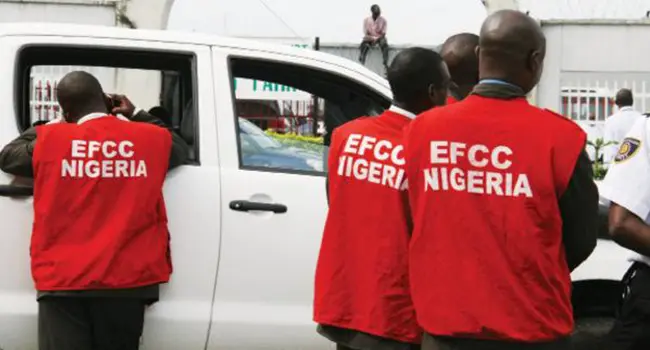
— Stops MDAs from nominating CSOs for project monitoring
By Johnbosco Agbakwuru
ABUJA — THE Bureau of Public Procurement, BPP, has disclosed that it is collaborating with the anti-corruption agencies to ensure that the procurement process in the country is not compromised.
The Bureau has also promised to publish a revised list of Civil Society Organisations, CSOs, that the Ministries, Departments and Agencies, MDAs can invite to observe procurement processes.
Director-General of BPP, Dr. Adebowale Adedokun, made the disclosure on Monday, in Abuja, at the one-day national stakeholders interactive workshop with CSOs in Nigeria on the current trends in procurement practices and their roles in procurement reforms.
The workshop was declared open by the Minister of Information and National Orientation, Mohammed Idris, who was represented by a director in the ministry, Suleiman Haruna.
In his opening remarks, the BPP Director General explained that the inter-agency collaboration was aimed at strengthening the fight against corruption in the public procurement and the public finance management system, through effective corruption prevention mechanism.
Dr. Adedokun said: “Our resolve to further strengthen the integrity of the public procurement system in Nigeria remains unshaken.
“We have ramped up our collaboration and working relationship with anti-corruption agencies such as the Economic and Financial Crimes Commission (EFCC), Independent Corrupt Practices and Other Related Offences Commission (ICPC), Office of the Auditor-General for the Federation (AuGF), Office of the Attorney General of the Federation, Nigeria Extractive Industries Transparency Initiative (NEITI), Code of Conduct Bureau (CCB), Nigerian Financial Intelligence Unit (NFIU).
“This inter-agency collaboration is aimed at strengthening the fight against corruption in the public procurement and the public finance management system at large, through effective corruption prevention mechanism.
“This reform is not limited to the federal system, but is being extended to the sub-national through our partnerships with the State Government Public Procurement Regulatory Authorities and the Association of Local Government of Nigeria (ALGON).”
He explained that the workshop was not just about identifying problems; but building partnerships for sustainable solutions.
“Together, we can create a public procurement system that truly serves the interests of all Nigerians—one that is transparent, efficient, and free from corruption,” he stated.
He said the workshop was a critical platform for dialogue, collaboration, and capacity building as the bureau explores the current trends in procurement practices and the indispensable roles of civil society organisations in advancing procurement reforms in Nigeria.
The DG described public procurement as a cornerstone of governance and economic development, which accounts for a significant portion of public expenditure and serves as a strategic tool for achieving national development goals.
He said that the recent introduction of digital platforms like the Nigeria Open Contracting Portal, NOCOPO, has further enhanced openness and accessibility in procurement processes despite the persisting challenges persist.
The BPP boss said CSOs are critical stakeholders in the journey for transparent procurement system, adding that as watchdogs and advocates for good governance, CSOs play a vital role in monitoring procurement processes, ensuring compliance with regulations, and holding public officials accountable.
He said: “Your active participation can help bridge gaps in transparency and foster trust between government institutions and citizens. Other evolving roles of CSOs are but not limited to Advocacy and Awareness, Capacity Building of key actors, Research and Analysis, Social Audits, Community mobilization, Engaging in policy dialogue, Deployment of technical tools, Enhancing public trust, Supporting sustainable development, etc.
“This workshop is designed to equip you with insights into emerging trends in procurement practices while emphasising your roles as partners in reform. Together, we can build a procurement system that not only meets global standards but also delivers tangible benefits to all Nigerians.”
Continuing, he said: “Public procurement is more than a technical function—it is a strategic enabler of national development through the effective delivery of Mr. President’s Renewed Hope Agenda. By ensuring transparency and accountability in the management of public resources, we directly contribute to economic growth, social equity, and sustainable development.
“As CSOs, you play a pivotal role in this process as watchdogs. Your work ensures that public funds are utilised efficiently to deliver impactful services to citizens.As part of our intervention in addressing challenges with project delivery occasioned by weak contract management regime in the system, the Bureau is currently collaborating with key stakeholders such as the Federal Ministry of Justice, Nigerian Bar Association and others to come up with a robust contract management framework and system that will cure the ills of the existing contract management system.
“This will pave the way for a more effective delivery of projects that are key to the achievement of the National Development Goals and also prevent unnecessary exposure of government to contract risks that are capable of constituting a huge drain of government resources.
“To this end, BPP will publish a revised list of CSOs that MDAs can only invite to observe procurement processes. To ensure compliance, an appropriate circular will be issued, which will direct all MDAs to send a request to the BPP to engage CSOs as observers for bid opening immediately after advertisements are published.
“Only the approved CSO on the Register of Procurement Monitors will be recommended for MDAs to engage. Consequent upon this, we must jointly develop a new framework for our engagement that focuses on, among other things, ethical practice, sanctions and incentives, innovative sources of funding, and creative means of effectively observing procurement processes.”
The post BPP, EFCC, ICPC collaborate to checkmate corruption in procurement process appeared first on Vanguard News.








